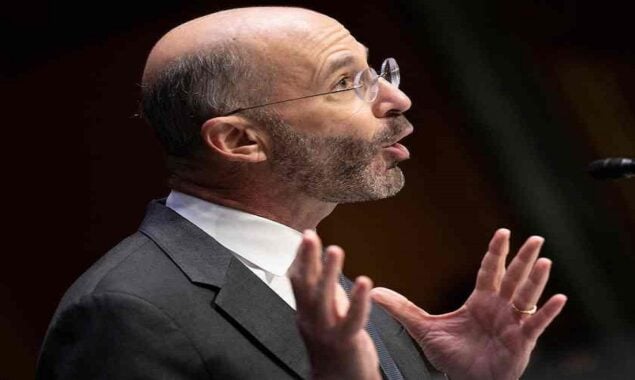
The US warned on Wednesday that discussions to resurrect a nuclear agreement with Iran were more likely to collapse, and threatened no let-up in pressure if Tehran clung to its demands.
Despite leading more than a year of indirect talks with Iran in Vienna, Rob Malley told Congress that President Joe Biden’s administration still backed the 2015 nuclear deal and was willing to waive sanctions if an agreement was reached.
“As of today the odds of a successful negotiation are lower than the odds of failure and that is because of excessive Iranian demands to which we will not succumb,” Malley told the Senate Foreign Relations Committee.
He said the United States would reject “demands that go beyond the scope of the JCPOA,” using the official name for the Joint Comprehensive Plan of Action.
“We are fully prepared to live with and confront that reality if that is Iran’s choice,” Malley said.
He was most likely referring to the clerical state’s demands that the elite Revolutionary Guards be removed from a terrorism blacklist, a step rejected by Biden and strongly opposed by many in Congress.
However, Malley made it clear that Biden did not support military action, an option openly considered by Israel, which is accused of carrying out a covert assassination operation against Iranian nuclear experts.
“All options are on the table,” Malley said, while adding that military action would only “set back” Iran’s nuclear program.
Referring to the US history of war in the Middle East, Malley said, “We know that it costs.”
“But let’s leave it at this — the only solution here is a diplomatic one.”
Malley, on the other hand, warned of further economic pressure if talks fail — and suggested the US will have European support, unlike former President Donald Trump.
The Treasury Department announced Wednesday that it was sanctioning a network backed by Russian officials and the Revolutionary Guard that had delivered hundreds of millions of dollars of oil in defiance of unilateral US restrictions.
The JCPOA, negotiated by then-President Barack Obama with the support of European countries, Russia, and China, offered economic relief to Iran, which, according to inspectors, had been complying with the agreement’s harsh restrictions on its nuclear program.
Trump withdrew in 2018 and implemented broad unilateral penalties, including sanctions on Iranian oil, intending to bring Tehran to its knees.
Malley claimed that Trump’s strategy had obviously failed, citing Iran’s increased nuclear activity since the US withdrawal.
Senators, including those from Biden’s Democratic Party, expressed frustration, recalling that Secretary of State Antony Blinken had warned in January that Iran was just “a few weeks” away from progressing to the point where the JCPOA was no longer helpful.
“We continue to wait and hope. But hope is not a national security strategy,” said Senator Bob Menendez, the Democratic chairman of the committee.
Menendez said Iran had convinced the world “that the United States wants the JCPOA more than the Iranian regime does.”
Malley replied that technical assessments remain “that the nonproliferation benefits of the deal are worth the sanctions relief that we would provide.”
He also offered strong criticism of Iran’s crackdown on recent protests against austerity measures.
“I don’t think this is a strong regime that is basking in being able to circumvent sanctions,” Malley said.
“It is a regime under duress and that’s because of its own mismanagement and our sanctions.”
For the latest International News Follow BOL News on Google News. Read more on Latest International News on oldsite.bolnews.com
Read More News On
Catch all the International News, Breaking News Event and Latest News Updates on The BOL News
Download The BOL News App to get the Daily News Update & Follow us on Google News.




